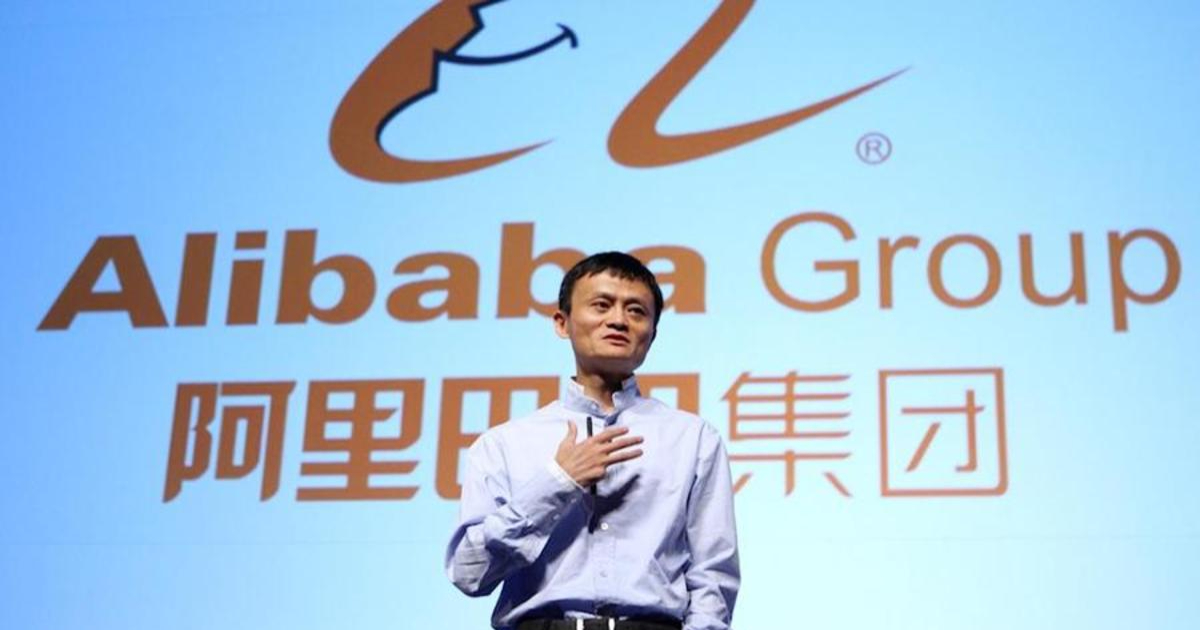Alibaba is one of the Chinese tech giants making Singapore its beachhead for Southeast Asia.
Competitors Bytedance and Tencent Holdings are also making investments into Singapore, giving insights into their strategies here.
Previously, we took a look at how Bytedance plans to spend “billions of dollars” in Singapore and what it means for us.
This time, we delve into Alibaba’s expansion plans and how it is planning to grow its presence in Singapore.
Building SEA’s Leading E-commerce Logistics Platform
In 2014, Alibaba announced that it invested S$312.5 million for a 10.35 per cent stake in SingPost.
This is the first overseas postal agency that Alibaba has invested in and the investment was to “leverage SingPost’s strong delivery networks and end-to-end e-commerce logistics solutions to facilitate international e-commerce”.
In China, alongside other investors, Alibaba has been working on a massive logistics and delivery network to enable 24-hour deliveries across the country.
Alibaba then made a second investment of S$187.1 million, raising its stake in SingPost to 14.4 per cent, making it the second largest shareholder in SingPost after Singtel.

Subsequently, in 2016, Alibaba also invested S$86.2 million to buy a 34 per cent stake in Quantium Solutions International, a SingPost subsidiary that provides e-commerce logistics and fulfilment services across the Asia Pacific.
With these investments, Alibaba is set on building a leading e-commerce logistics platform across Southeast Asia to serve the region’s fast rising e-commerce logistics needs.
“A robust logistics network is vital to helping our merchants successfully serve the vast population across Southeast Asia and Oceania, and realise Alibaba’s vision to ultimately serve two billion consumers worldwide,” said Daniel Zhang, CEO of Alibaba Group.
Taking Back The Lead In SEA’s E-commerce Market
Alibaba already has a controlling stake in Lazada, which they acquired back in 2016 to support its international expansion plans.
Over the years, Alibaba has poured in at least US$4 billion in investments, revamped Lazada’s technology, and sent a host of Alibaba executives to help lead the unit.

Lazada is Alibaba’s most high-profile and costliest investment outside of its home market. In June 2017, it increased its investment in Lazada by an additional US$1 billion, raising its stake from 51 per cent to 83 per cent.
Alibaba invested another US$2 billion into Lazada in March 2018, and founder Max Bittner was replaced as CEO by Alibaba executive Lucy Peng.
In August 2018, Lazada became the largest e-commerce operator in SEA based on average monthly web visits.
In December 2018, Peng was replaced by Pierre Poignant as CEO of Lazada.
The following year, rival Shopee took over Lazada as the top e-commerce platform in the region. Alibaba’s competitor, Tencent Holdings, has a minority stake in Sea Limited, Shopee’s parent company.

Poignant was later replaced by Chun Li in June this year, marking him as Lazada’s third CEO in just over two years.
Li has been with Alibaba since 2014, joining as chief technology officer for the company’s B2B division.
He moved to Lazada in 2017 and has since served as both group president and CEO of Lazada Indonesia. Prior to Alibaba, Li held leadership positions at Paypal and eBay.
Lazada’s winning e-commerce strategies include live-streaming, which has become a fixture in their ‘shoppertainment’ strategy as seen in Lazada’s in-app live streaming feature LazLive, blending shopping and entertainment.
It allows shoppers, brands, and sellers to interact in real time, as well as provides detailed product demonstrations and the ability to purchase items simultaneously.
The app leverages Alibaba’s technology and is said to be the first ecommerce company to launch in-app livestreaming on its platform in November 2018.
It is also the only ecommerce platform in Southeast Asia offering the ‘see-now-buy-now’ feature which offers a closed loop for in-app purchase.
Lazada also plans to build and continue to expand the largest logistics network in the region, whilst catering to the different needs in each market.
Additionally, with a tech expert and veteran of one of Alibaba’s domestic online markets, Lazada looks set to win back the leader position for SEA’s online shopping market.
Investing S$1.68B In One Of S’pore Prime Office Buildings
Last May, Alibaba bought a 50 per cent stake in Singapore’s AXA Tower, where Lazada is an anchor tenant.
The deal values the 50-storey prime office tower along Shenton Way at S$1.68 billion and cements Alibaba’s presence in Singapore.

The stake in AXA Tower is being viewed as solidifying Alibaba’s commitment to the city state.
“Singapore is an important market for Alibaba Group,” a company spokesman said.
“This investment will help fulfil our projected business needs across the Alibaba digital economy, as we continue to strengthen operations in Singapore.”
The investment by the tech giant represents a vote of confidence for Singapore and demonstrates Singapore’s attractiveness to technology and e-commerce companies.
Attaining S’pore’s Digital Bank Licence
Ant Group, the financial arm of Alibaba, was among the four groups to receive digital banking licenses from the Monetary Authority of Singapore.

For Ant, the digital banking license in Singapore means a fresh opportunity for its overseas expansion.
It comes as a much needed boost after it shelved what was called the world’s biggest initial public offering due to greater Chinese regulatory scrutiny.
The license gives the firm a chance to address the “underserved” financial needs of young consumers and small and medium businesses in Singapore.
This allows them to take deposits and offer services to both retail and corporate customers in a country where most of its 5.7 million population already have bank accounts.
The licensees could use the opportunity as a step towards expanding into larger Southeast Asian markets.
Singapore-based merchants that use Alipay could be potential customers for Ant’s digital-banking services, sparking wider adoption.
Potential US$3B Investment In Grab
It was first reported last September that Alibaba is planning to invest US$3 billion in Grab to use its delivery capabilities and variety of services to bolster its business in SEA.
Part of the US$3 billion would be used to acquire some of the Grab stock held by US ride-hailing firm Uber Technologies.
Alibaba rival Tencent has invested in Gojek, which is Grab’s rival. That alone is enough to prompt Alibaba to back a competing service in the region.

At a public forum in 2015, Jack Ma had made known that the Group’s goal is to serve two billion consumers, and detailed its intentions of becoming a global company to achieve that aim.
Grab’s on-demand logistics infrastructure, regional know-how and established partner networks in each country in Southeast Asia will complement Alibaba’s areas of focus in e-commerce and fintech.
Therefore, if successful, the Chinese giant’s Grab acquisition gives it access to data on millions of users in eight countries, an extensive delivery fleet, and e-wallet and financial services.
Why Is S’pore An Important Market For Alibaba?

Singapore has loads to offer — a developed infrastructure, political stability, open business policies, a skilled workforce, respect for intellectual property rights and more, making it a highly attractive location for investors.
We also have a dynamic startup scene and is currently home to at least five unicorns – Grab, Lazada, Razer, Trax and Sea Limited (before it went public).
Furthermore, Singapore has always been a “neutral” nation. PM Lee Hsien Loong had said that Singapore would resolutely stick to its policy of maintaining good ties with the US and China even as the two major powers remained at loggerheads.
Singapore has strong security ties with the US as well as deep economic ties with China – with the two countries joining hands in three major joint projects in China.
With that, we can say that it is relatively safe for any Chinese company to set up their base here and make Singapore its springboard to the rest of SEA.
What Does It Mean For Us?
More Job Opportunities
With Alibaba’s presence set to grow here, this will potentially create more job vacancies.
Currently, on their careers page, they are hiring for over 30 roles, mostly for Ant Group, ranging from Blockchain R&D Engineer to Solution Architect.
Lazada’s job portal has over 186 job openings, ranging from content marketing to campaign management.
It is estimated that with Alibaba’s plans in Singapore, it will lead to more demand for e-commerce, logistics, digital marketing, data science and fintech roles, among others.
Intensified Chinese Competition In Asia
Competitors Bytedance and Tencent Holdings are also making inroads into Asia.
Tencent Holdings, the parent company of WeChat, is reported to be setting up its regional hub here. Tencent also backs Sea Limited, which is the parent company of Shopee, Lazada’s rival.

ByteDance on the other hand, has leased a whopping 60,000 sq ft space in One Raffles Quay, a Grade A office building located in the central business district (CBD).
Private sources also reveal that Bytedance is looking to establish a data centre here as well.
As Singapore faces a talent crunch, this could mean more intense competition to win talent over to their sides for each tech giant.
Online payment platforms AliPay and WeChat Pay may become more adopted here in Singapore and competition will increase.
Bytedance is said to be seeking a payment license as it took over all the shares of an online payment firm, sparking possibility of its foray into payment services.
How Alibaba Is Standing Out From Its Rivals
Overall, the Chinese tech giants seem to have rather different plans and directions. Each of them are focused on different areas of growth, albeit in the online space.
Alibaba wants to build a leading e-commerce logistics platform across SEA to serve the region’s fast rising e-commerce logistics needs.
Meanwhile, Tencent has been making deeper forays into the region’s gaming market, with several minority investments such as its stake in Singapore online gaming and e-commerce firm Sea Limited.
According to Reuters, it has plans to develop a full-scale comprehensive hub in Singapore that will house its international game publishing business.

Bytedance focuses more on taking their social media services deeper into Asia and plans to expand beyond TikTok, Singapore-headquartered business messaging service Lark, and music streaming service Resso.
It was reported in August that TikTok is piloting in Southeast Asia the live-streaming commercial initiatives pioneered in China.
It was applying for a digital bank license as well but failed to be selected, dampening its foray into fintech here.
Featured Image credit: The Lowdown








